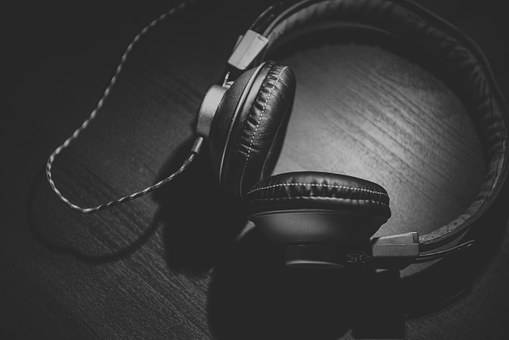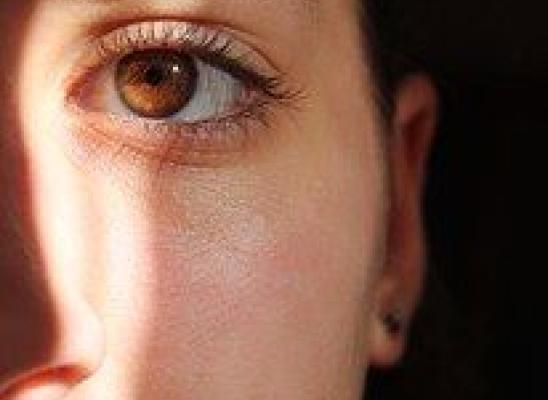Sensory overload and how to cope

Online test
Find out the severity of your symptoms with this free online test
The world is full of stimuli that affect your five senses: sight, sound, smell, taste, touch. Every person is unique in the way their brain processes that stimuli and sensory overload can occur for anyone.
What is sensory overload?
Some people feel increased stress when stimuli gets to be too much. Think of that fingers-on-the-chalkboard sound and the sensation you feel when that happens. Now imagine that feeling happening when there are too many people around or when someone touches you or when there is too much noise. When someone has a sensitivity to outside stimuli, the body’s stress response can activate in such a way that the nervous system becomes overwhelmed. Some people experience panic attacks when the nervous system overloads and some people experience physical pain. When that happens, the natural response is to search for a way soothe ourselves or to make it stop.
Reactions to sensory overload
There are healthy and not-so-healthy ways to soothe ourselves. Healthy ways can include wrapping up in a blanket in a quiet room surrounded by familiar things that make us feel at peace. Unhealthy ways can include alcohol or substance use. Imagine the overloaded nervous system as a rubber band stretched too far. At some point, either it needs relief from the stretching or it will break. The same thing happens with our nervous systems. Self-soothing and emotional regulation skills can be the relief mechanism, but many people are not taught healthy techniques and therefore turn to whatever it is they found that is soothing. If the nervous system is not brought out of a state of stress either through relief or breakage, it can stay in a state of stress or anxiety that eventually becomes the new normal.

How is sensory overload related to hair pulling?
There is no one definitive cause for compulsive hair pulling. In some cases, hair pulling gives an emotional release, a way to focus on a different type of pain, or a way of soothing. For those who experience sensory overload, the pulling of hair may serve as a way to relieve the tension. Sometimes, the brief, intense pain of pulling out hair followed by a sense of relief becomes the method by which that rubber band is let loose from whatever is stretching it too far.
Prevent sensory overload
The first step in figuring out if sensory overload contributes to hair pulling behavior, is to begin to pay attention to how you feel prior to pulling. Perhaps you already know that when you feel overwhelmed, you’ll also feel the compulsion to pull. Tracking hair pulling behavior in an app or a notebook along with emotions, events, people, places, and thoughts involved before the compulsion to pull and during may help you figure out if sensory overload could be a contributing factor.
Knowing your triggers is the second step. Even if you already have a pretty good idea of what stimuli causes you to feel overwhelmed, tracking pulling behavior can help you figure out what type of sensory overload affects you most. Not everyone reacts to stimuli in the same way. You may feel fine with lots of noise, but bright lights may make you feel overloaded. Intense smells may overwhelm you but not cause you to want to pull whereas people touching you might.
Once you have a better understanding of what kind of stimuli sends you into overload mode, take some steps to prevent overload from happening. It is ok to avoid situations, locations, or people that make you feel overwhelmed.
Consider some of the following tips to prevent sensory overload:
- Minimize sound by wearing headphones or hats.
- Decrease the effects of bright lights by wearing sunglasses or tinted glasses.
- Avoid places with too many people or go to those places during off-hours.
- Wear gloves or loose clothing that covers your body to decrease the effect of touching the environment or people touching you.
- Plan activities that induce sensory overload in such a way as to minimize the effect. For example, take care of errands in one day per week.
- Practice self-care before and after experiencing stressful situations.

What to do when you feel overloaded?
If you find yourself in a situation where you are feeling overloaded, there is nothing wrong with leaving that situation or taking a break from it. Western culture tends to support pushing through adversity. While that can be helpful in some situations, in others, it can be damaging. Nervous system overload is one of those damaging situations, that if left without healing, can cause even more physical and mental health problems.
When you feel overloaded, consider getting away or taking a break. If you can’t get away or take a break, take a mini-break and use grounding skills such as focusing on deep breathing to engage your nervous system’s calming mechanism.
The aftermath
When the nervous system calms after sensory overload, it is exhausted. Allow yourself time to rest. Give yourself permission to rest because your body has just been through a workout. After resting, take some time to evaluate what happened. Consider what caused the sensory overload and what you could do differently to either prevent it from happening again or learn new skills to manage it in the future.
Do not blame yourself or judge yourself harshly. You cannot control your nervous system or how it reacts to stimuli. You can, however, take control of how you react to it and how you take care of yourself in terms of prevention and reaction.
Online test
Find out the severity of your symptoms with this free online test
Start your journey with TrichStop
Take control of your life and find freedom from hair pulling through professional therapy and evidence-based behavioral techniques.
Start Now



